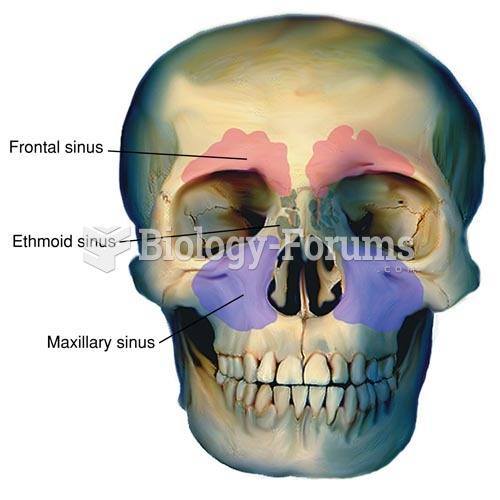|
|
|
An identified risk factor for osteoporosis is the intake of excessive amounts of vitamin A. Dietary intake of approximately double the recommended daily amount of vitamin A, by women, has been shown to reduce bone mineral density and increase the chances for hip fractures compared with women who consumed the recommended daily amount (or less) of vitamin A.
Approximately 70% of expectant mothers report experiencing some symptoms of morning sickness during the first trimester of pregnancy.
Blastomycosis is often misdiagnosed, resulting in tragic outcomes. It is caused by a fungus living in moist soil, in wooded areas of the United States and Canada. If inhaled, the fungus can cause mild breathing problems that may worsen and cause serious illness and even death.
More than 4.4billion prescriptions were dispensed within the United States in 2016.
More than 150,000 Americans killed by cardiovascular disease are younger than the age of 65 years.
 Correctly administering and interpreting an intelligence test is a skill that takes many years for ...
Correctly administering and interpreting an intelligence test is a skill that takes many years for ...
 Schematic of a typical electronic throttle control (ETC) system. Note that terminal #5 is always ...
Schematic of a typical electronic throttle control (ETC) system. Note that terminal #5 is always ...





